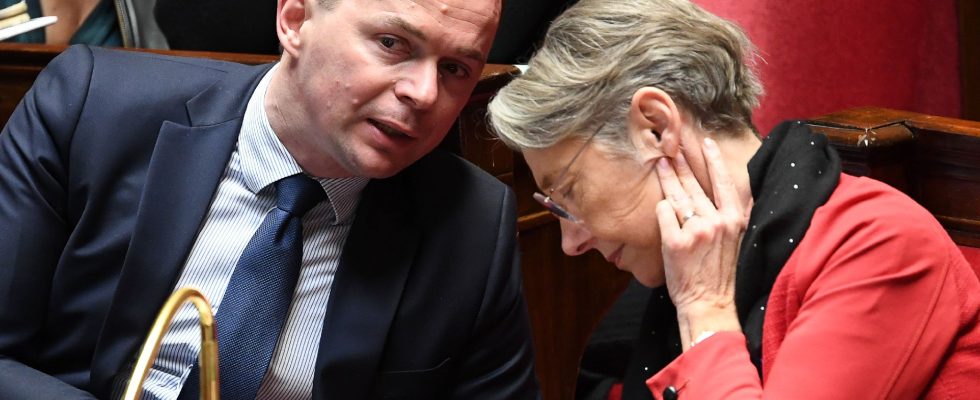After the State budget, place for that of Social Security. Barely the last 49.3 charged, the deputies are already preparing to comb through the social security financing bill (PLFSS), which will experience, as many predict in the Assembly, the same destiny.
But, as the discussions open on Tuesday, October 24, at 5:15 p.m., the government has taken care to remove two thorns in its side: the contribution of Agirc-Arrco and the increase in the franchise medical – measures respectively announced and envisaged.
The Elysée finally gave up, Monday October 23 at the end of the day, from incorporating these two, to say the least, controversial measures into the Social Security budget, according to information from Franceinfo.
The end of inadmissibility of the social partners
However, Bercy had confirmed its desire to contribute to the Agirc-Arrco private pension fund from 2025. And this, in order to avoid a deficit in the entire pension system. A windfall which was to bring the State nearly 1 billion euros. But, following negotiations with the social partners at the beginning of October, the government was met with rejection.
The idea of dipping into the coffers of the private retirement fund did not appeal to the opposition deputies either, with strong winds against a measure that they feared would appear in the Social Security budget. “The government must step back on the issue, we must recreate a climate of trust with the social partners,” thundered the leader of the Liot group, Bertrand Pancher. For the communist Pierre Dharréville, such a maneuver would be confused with “a diversion of contributions”.
The boss of RN deputies, Marine Le Pen, had denounced “looting” and called in a forum for parliamentarians to “overcome partisan divisions [pour s’opposer] to any withdrawal from the reserves” of supplementary pensions. The deputy Yannick Neuder and the senator Valérie Boyer, both LR, deplored a “hold-up of private pensions”.
But when the government announced the possibility of an increase in the medical franchise, the reactions were just as knee-jerk. Especially since, in an interview given to La Tribune Sunday, published on October 15, Prime Minister Elisabeth Borne indicated that a discussion on this subject was currently “in progress”.
Enough to worry deputies who were ready to step up to the plate in the event of the measure being integrated into the PLFSS. The government “wants to make the French pay the price for drug shortages”, attacked rebellious MP Damien Maudet. Same story with RN MP Joëlle Mélin, who criticized a “completely indecent” increase.
Anger was even beginning to spread among the ranks of the Republicans, who were nevertheless deemed “Macron-compatible” on a certain number of economic subjects. On the increase in the medical franchise, LR MP Yannick Neuder saw the government’s hesitation as a “political trick” intended to circumvent the “repel effect” of the measure. And to warn against the risk of “hitting” the most precarious wallets.
Although what constitutes in the eyes of the elected representatives of the opposition two red lines have for the moment been excluded from the debate, other measures planned in the PLFSS will not fail to agitate the Hemicycle. Especially since, after the health crisis, the government aims to cut 3.5 billion euros in health sector spending in 2024.
